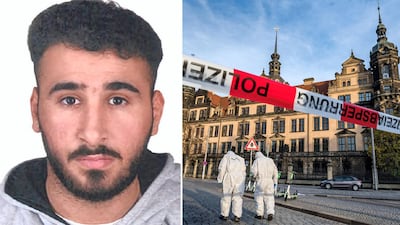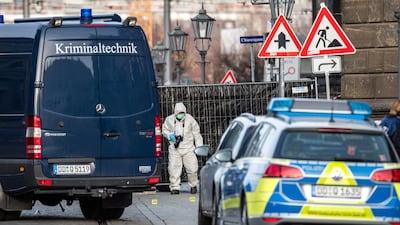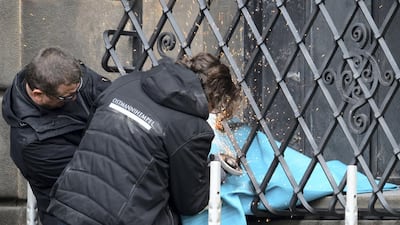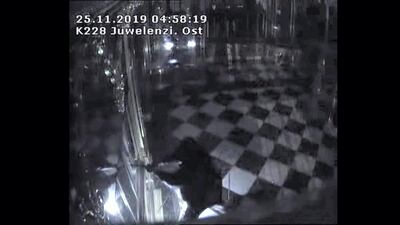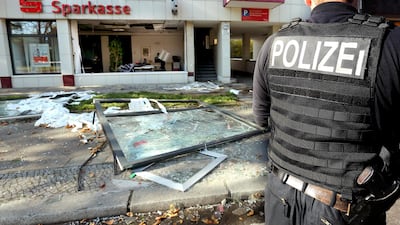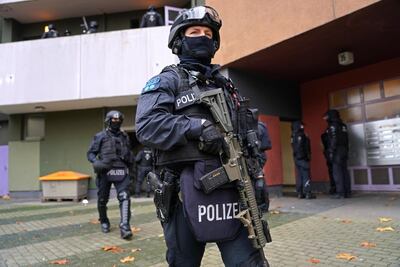German authorities are targeting young family members of prominent criminals as part of a long-term strategy to clamp down on the influence of powerful Arab gangs in Berlin, according to an influential city politician.
Falko Liecke, who represents a Berlin district at the centre of police activity against the gangs, said officials had embarked on a twin-track strategy to target gangs while encouraging their children to move into legitimate jobs.
Jail sentences have failed to deter criminal families and attempts to roll back the influence of some of the most serious gangs could take decades, he warned. The deportation of crime bosses has failed to change the big picture as “they can act from Lebanon as well”.
“We need to destroy the criminal structures which will take many years,” said Mr Liecke. “If we manage to keep the pressure on the clans high and at the same time suggest alternatives to crime for the young family members, we have a chance to push back further organised crime within the next 20 years.”
Under public pressure following a series of high-profile crimes and gangland killings, German police last year embarked on a campaign of constant harassment of the gangs with 240 operations targeting the different groups.
Berlin police last month identified 388 people involved in Arab clan crime, nearly half of them Germans and about 18 per cent with Lebanese nationality. Figures showed that they were responsible for a crime every eight hours in the city, ranging from killings to traffic offences.
In a series of regular raids, police targeted more than 100 shisha bars, nearly 130 barbers and 27 betting shops in Berlin, to go after the financial underpinnings of the gangs and the networks that launder money from the proceeds of drug sales.
“The clans are not impressed by prison sentences,” said Mr Liecke, who authored the anti-gang strategy for the Christian Democrat Union party of Chancellor Angela Merkel in Berlin. “There is one proverb that gets to the point: 'Jail makes men'.
“We have to hit them where it hurts and that is the money … I want pressure from every direction the state can provide to make clear that crime is not worth it. Crime has to be maximally unattractive.”
His party has mooted the idea of reducing the age of criminal responsibility from 14 to 12, as gangs use young children as couriers and drug runners to avoid police scrutiny.
Mr Liecke, deputy mayor and head of youth welfare in the multiracial district of Neukolln, said the move was not designed to jail children but to ensure earlier interventions before they are integrated into the gangland lifestyle.
Critics claim that the crackdown on clan crime has fuelled far-right violence by exaggerating the dangers posed by migrant populations.
Lawyer Erkan Zuenbuel said the crime statistics were inflated by authorities who lumped in minor offences committed by anyone with a notorious surname. Raids by armed police of shisha bars had “created the impression that these are places fraught with crime”, he said.
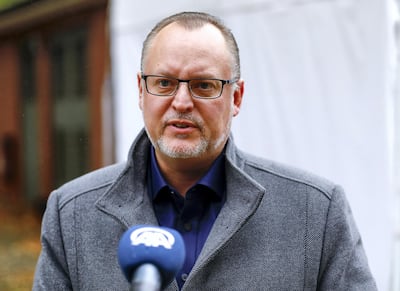
Prof Mathias Rohe, who wrote an influential 2015 study into parallel systems of justice within Middle East groups in Berlin, said the campaign had had a negative impact on people uninvolved in criminal activity.
“Some young people tried to change their names,” he said. “They said if they applied for a job with this surname, they would never have a chance because some of their family members had such a bad reputation.”
The so-called clan structure in Germany is dominated by Lebanese groups, Iraqi Kurds and Turkish families, with the heads of families at its heart.
Prominent among them is the Remmo clan, which has a history of spectacular heists that have hit the headlines.
The clan has up to 1,000 members drawn from 13 families that are spread around Germany. They are from a Mhallami group, part of the Arab minority in Turkey, who moved to Lebanon and then Germany during the civil war.
The family has been linked to the theft of a giant gold coin which has never been recovered after it was stolen from a Berlin museum in 2017. It was targeted by the authorities who seized 77 properties connected to the group in 2018.

“I note that since 77 assets of this one particular family in Neukolln were seized, they are getting nervous and careless,” said Mr Liecke. “They feel the pressure on their criminal business model.”
Mr Liecke has faced personal threats for his stance against the gangs, including his suggestion that a seized villa once owned by Issa Remmo, the head of the clan, should be turned into a community centre.
“I receive threats regularly on social media, mostly from clans but also from left or right-wing extremists and conspiracy theorists,” he said. “I try not let that influence me. It would be a success for them if I would change my policy due to that.”
More on Germany's Arab gangs
Fast cars and hookah bars: On the trail of Berlin’s Arab gangsters
Lebanese crime clan blamed for $1bn Dresden jewel heist
German police raid 20 buildings in crackdown on organised crime
The Godfather of Berlin and the battle for control of Germany’s underworld
